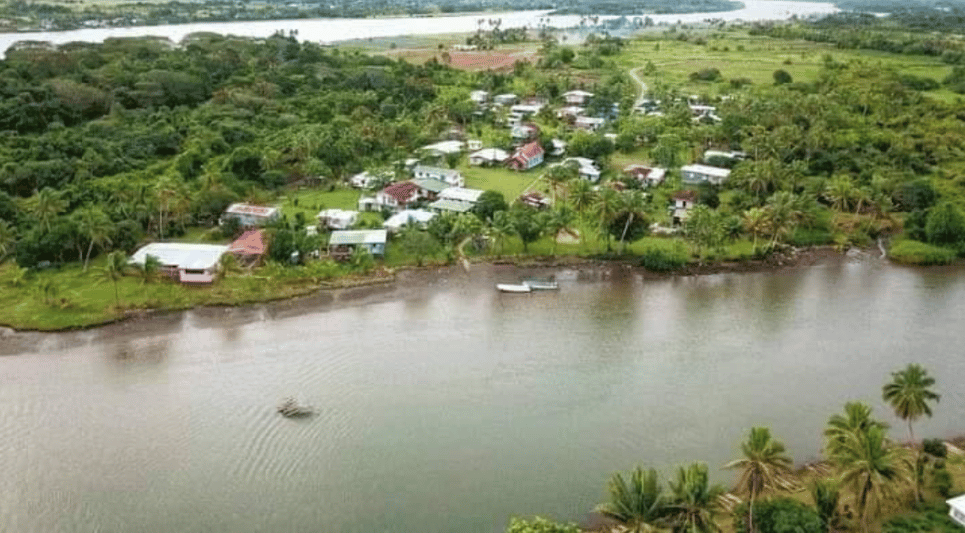
Our world suffers daily from different situations and circumstances that have come about due to human actions. One of which is this global phenomenon we know as climate change.
This is a story about how my land is being affected by climate change.
I come from Rewa, the smallest province in the Fiji Islands. Rewa is a province of flat land, valleys, waterways, and home to Fiji’s widest river. It is well known for the only province in Fiji that obtains the most thalassina, more commonly known as mud lobsters or “mana” in Fijian. These are harvested from mangrove swamps (something that is also in abundance in our land).
We are more (somehow infamously) known for our mouths, so to speak. Our words are filled with deception and trickery that will either save us out of complicated situations or land us a pretty sweet deal. There is an informal Fijian idiom back in our province that says,
“E sega na neitou ulunivanua, sa neitou ulunivanua ga na gusui keitou”
which directly translates to, “We have no hills or mountains but our hills and mountains are our mouths”.
This implies that although our land may be flat, our words can and will lift you high, drop you low and at times, push you off a cliff, metaphorically speaking. For a province so small, we sure do have big mouths.
Considering how our geography is flat, we are prone to getting flood often. It was not like this before but over the years, due to climate change and what could possibly be sea level rise, our land is continually under water.
To get to most of the villages in the province, the main mean of transportation is by an engine powered boat or at most times, a bamboo raft. What was meant to be a mode of transportation from village to village has now become a mode of movement from house to house within a village. This is merely because at most times when the weather is unfavourable, our villages partially submerge.
A few weeks ago, we laid one of my grandaunts to rest. We all know that the standard Christian funeral proceedings includes, a house mourning session, a church service, burial and then a funeral reception thereafter. Although we wanted to follow that procedure, the weather said otherwise. Due to the heavy rain and increased tides, water had invaded the burial grounds. So, after church, the body was brought back home and the people that had gathered to pay their last respects, proceeded to lunch. When the water had returned, my grandaunt was then finally laid to rest.
This is what it has come to. This is the normality. This is something we aren’t used to but somehow have adjusted to follow. Climate change has really affected our lives and if the situation is like this right now, who knows what it will be like in a few years’ time?
As of right now in our province, the villages near the coastline are the ones most in danger and my village is one on the coast. If we were to relocate, inward is the only way to go because we do not have the hills to relocate upwards. Unfortunately for my people and I, our mouths can’t save us this time around.
But as far as inward relocation is concerned, with the rapid occurrence of climate change, it is only a matter of time when the water will have come inland as well.
I raise these questions as a future inhabitant of my village. Where will my descendants and I go when the village fully submerges and there is no point of return? Where do we run to? Who do we turn to?
Our lives are at stake and we have to act right now to protect our future because with climate change, every day is a ticking bomb.
The real question is; IS THERE EVEN A FUTURE TO PROTECT?